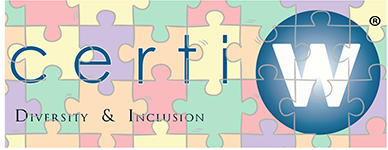
**Sustainability and Certification: A New Horizon for the Future**
In today’s global landscape, sustainability has become a central theme not only for public institutions but also for the market and companies. The Quality Infrastructure provides reliable tools to assess and verify the environmental, social, and governance (ESG) aspects of organizations in accordance with international standards. This process has never been more crucial for ensuring transparency and accountability in sustainability reporting.
### The Need for a Robust Regulatory Framework
The growing interest in sustainability reporting, in and of itself, requires a strong framework. The goal is to ensure that companies and institutions can operate under principles of transparency and reliability, thereby creating an ecosystem capable of attracting investments and resources. Representatives from European accreditation bodies and accredited conformity assessment organizations recently gathered to discuss strategic perspectives and the necessary actions to achieve this objective.
In the international context, the development of specific regulations can promote a unified and coherent approach to sustainability reporting. This includes identifying new practices and standards to adopt, allowing institutions and companies to operate synergistically by integrating sustainability requirements into their business models.
### The Experience of Legal Auditors and Audit Firms
With a solid background in financial consulting, legal auditors and audit firms have played a fundamental role in the evolution of sustainability reporting verification. Through the adoption and adaptation of international standards, these professionals have contributed to ensuring that sustainability practices are verified with rigor and reliability.
This dialogue between auditors and institutions has led, in several countries, to the integration of verification standards into local regulatory frameworks. It is therefore essential to recognize the value of sustainable auditing as a tool of trust for stakeholders and institutions, thus contributing to a solid and responsible regulatory environment.
### Evolution of Conformity Assessment Organizations
Conformity assessment organizations have adopted a distinctive approach compared to legal auditors, yet share the goal of providing rigorous and reliable practices for certifying ESG aspects. These organizations are vital for ensuring that companies monitor, report, and improve their environmental and social practices, thus taking responsibility for their actions.
Through conformity assessment methods, institutions can access accurate and verified information, instilling a high degree of confidence in sustainability verification processes. This not only facilitates stakeholder understanding but also promotes positive change within companies committed to achieving sustainable objectives.
### Responding to Institutional Needs
To ensure that the sustainability verification system is robust and reliable, a group of experts has started working on the integration of accreditation systems and verification standards. This study aims to highlight the synergies between the standards adopted by legal auditors and those applicable by conformity assessment organizations.
The analysis of the new International Standard on Sustainability Assurance (ISSA 5000), developed to provide a clear and globally recognized regulatory framework, represents a crucial step in this direction. This standard will become the basis for legal auditors and future regulations, and its integration with other supporting standards is essential to consolidate a harmonized approach to sustainability.
### Creating a New International Framework
The Sustainability Working Group is currently engaged in defining an international framework that sets clear requirements for accreditation bodies and assessment organizations. This framework aims to ensure that all actors operate with the same rigor as legal auditors, regardless of country or regulation.
The


